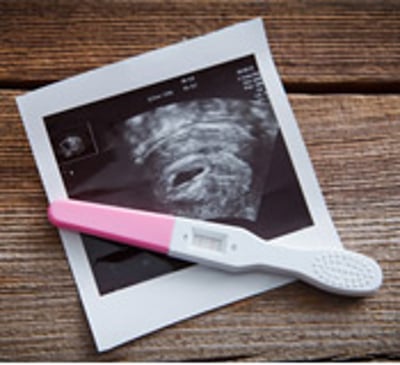FORCE's eXamining the Relevance of Articles for You (XRAY) program looks behind the headlines of cancer news to help you understand what the research means for you.
XRAY is a reliable source of hereditary cancer research-related news and information.
Learn more about the XRAY program
All XRAYs
Relevance: Medium-High


Strength of Science: Medium-High


Research Timeline: Human Research


Study : Can acupressure be used to treat cancer-related fatigue?
Relevance: Medium-High


Strength of Science: Medium-High


Research Timeline: Human Research


Most relevant for: Breast cancer survivors and people in treatment who are experiencing fatigue
Breast cancer survivors commonly report experiencing considerable fatigue, which can lead to sleep problems and poor quality of life. Yet, there are no good therapies for these patients. This research study looks at whether self-administered acupressure can help breast cancer survivors with their fatigue. (8/9/16)
Read More
Relevance: Medium-High


Strength of Science: Medium


Research Timeline: Human Research


Study : Is there a link between exercise and memory in breast cancer survivors?
Relevance: Medium-High


Strength of Science: Medium


Research Timeline: Human Research


Most relevant for: People diagnosed with early stage breast cancer
Exercise has many health benefits, but can it also help improve memory for breast cancer survivors? This research finds that breast cancer survivors who exercised more had less fatigue and distress (anxiety, depression, stress, and/or concern about recurrence) and scored better on memory tests. (8/2/16)
Read More
Relevance: Medium-High


Strength of Science: High


Research Timeline: Post Approval


Study : Extending aromatase inhibitor duration to 10 years lowers recurrence for ER/PR+ breast cancer patients
Relevance: Medium-High


Strength of Science: High


Research Timeline: Post Approval


Most relevant for:
Hormonal therapy reduces the risk of recurrence for women with early-stage breast cancer that is ER-and/or PR-positive. Standard therapy lasts 5 years. A new study looks at whether extending one type of hormonal therapy, known as aromatase inhibitor therapy, to 10 years lowers recurrence rates even more for these women. (7/26/16)
Read More
Relevance: Medium-High


Strength of Science: Medium-High


Research Timeline: Post Approval


Study : Racial disparities in BRCA testing: Why?
Relevance: Medium-High


Strength of Science: Medium-High


Research Timeline: Post Approval


Most relevant for: African American women who have been diagnosed with breast cancer
Black women receive BRCA testing less frequently than white women. Why is that? Researchers thought the reason might be that black and white women see different health care providers. However, new research suggests that disparities in physician recommendations for testing are the cause: black women with breast cancer were less likely to receive physician recommendations for BRCA testing than white women with breast cancer. There is a need to ensure equity in physician testing recommendations for black women. (7/21/16)
Read More
Relevance: Medium


Strength of Science: Medium


Research Timeline: Human Research


Study : Early research on a drug to prevent breast cancer
Relevance: Medium


Strength of Science: Medium


Research Timeline: Human Research


Most relevant for: Women with a BRCA1 mutation
Many researchers are interested in non-surgical options to reduce the higher-than-average risk of developing breast cancer in BRCA mutation carriers. This research study identified a type of drug, called a “RANK ligand inhibitor,” that may prevent breast cancer. Among mice that were genetically engineered to have no BRCA1 genes, those that were given the drug developed tumors less frequently than those that did not. While this is an exciting early study for BRCA mutation carriers, more work and human clinical trials need to be done before this can be used as a prevention therapy in humans. (7/12/16)
Update added 11/24/19: The RANK ligand inhibitor, denosumab is currently being studied as a possible breast and ovarian cancer preventive agent in human clinical trials.
Read More
Relevance: Medium


Strength of Science: Medium


Research Timeline: Human Research


Study : Breast cancer risk model updated for average risk women with genetic, lifestyle and environmental information
Relevance: Medium


Strength of Science: Medium


Research Timeline: Human Research


Most relevant for: Women at average risk for breast cancer
A number of factors are known to increase breast cancer risk, but some of these factors have not been included in models to predict breast cancer risk. This study looks at an updated model that includes some of these factors, such as genetics, smoking, and drinking. The goal of the model is to give women a more individualized breast cancer risk assessment. (6/29/16)
Read More
Study : Does light alcohol consumption affect your breast cancer risk?
Most relevant for: Women who drink alcohol and are concerned about their breast cancer risk.
Alcohol is known to increase breast cancer risk, but does that include light consumption? This study indicates that some breast cancer occurrences and mortality is due to light alcohol consumption. (06/21/16)
Read More
Relevance: Medium-High


Strength of Science: Medium-High


Research Timeline: Human Research


Study : Dense breast notifications are informative but hard to read and understand
Relevance: Medium-High


Strength of Science: Medium-High


Research Timeline: Human Research


Most relevant for: Women with dense breast tissue on mammograms
Some states offer women dense breast notifications that are meant to explain that dense breasts are risk factors for breast cancer and can hide cancer on mammograms, and to identify appropriate supplemental screening options. But recent research found that this information is often not easy to read or understand, which questions the usefulness of the documents. (6/7/16)
Read More
Study : Can long periods of fasting protect against breast cancer recurrence?
Most relevant for: Breast cancer survivors
Previous research in mice suggested that long periods of fasting provide protection against factors that are associated with a poor cancer outcome. A new study associates prolonged fasting (13 hours or more) at night with a lower risk of breast cancer recurrence, but no association between fasting time at night and mortality. While these findings are interesting, more research needs to be done to confirm them. In the meantime, breast cancer survivors should discuss any concerns about nutrition with their health care providers. 05/30/16
Read More
Relevance: Medium


Strength of Science: Medium


Research Timeline: Human Research


Study : Do BRCA mutations affect fertility?
Relevance: Medium


Strength of Science: Medium


Research Timeline: Human Research


Most relevant for: Women with a BRCA mutation who want to become pregnant
Age affects fertility. As women age, their ovaries release eggs that are not as healthy as those released in younger women. Fewer eggs are released each menstrual cycle as women age, making it harder for older women to become pregnant. Are women with BRCA mutations less fertile? Previous research suggested that BRCA mutations might affect women's fertility as she ages. A recent study found that BRCA1 mutation carriers may have slightly lower fertility than women without the same mutation, but more research is needed before this finding is useful for medical decision-making. (5/24/16)
Read More